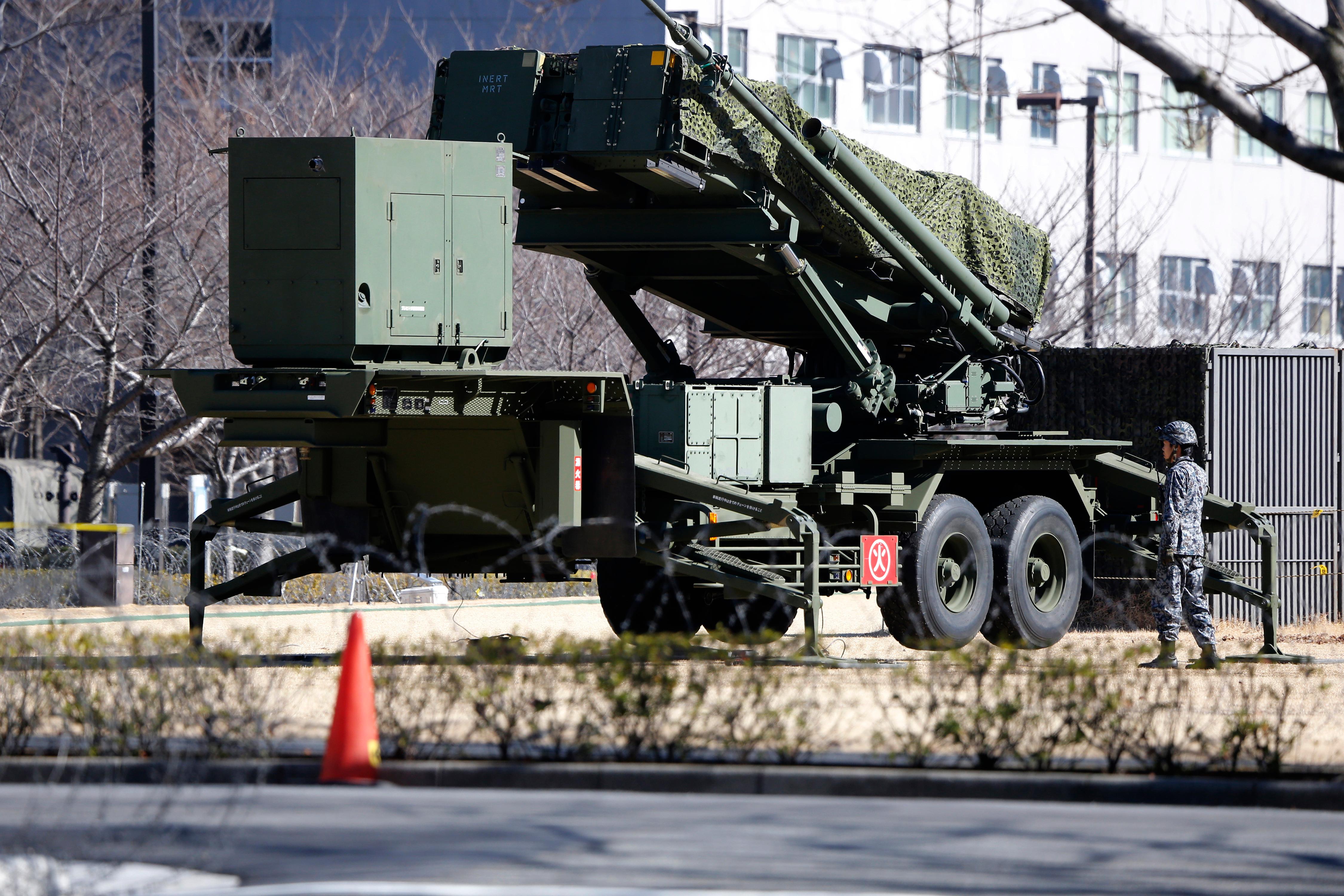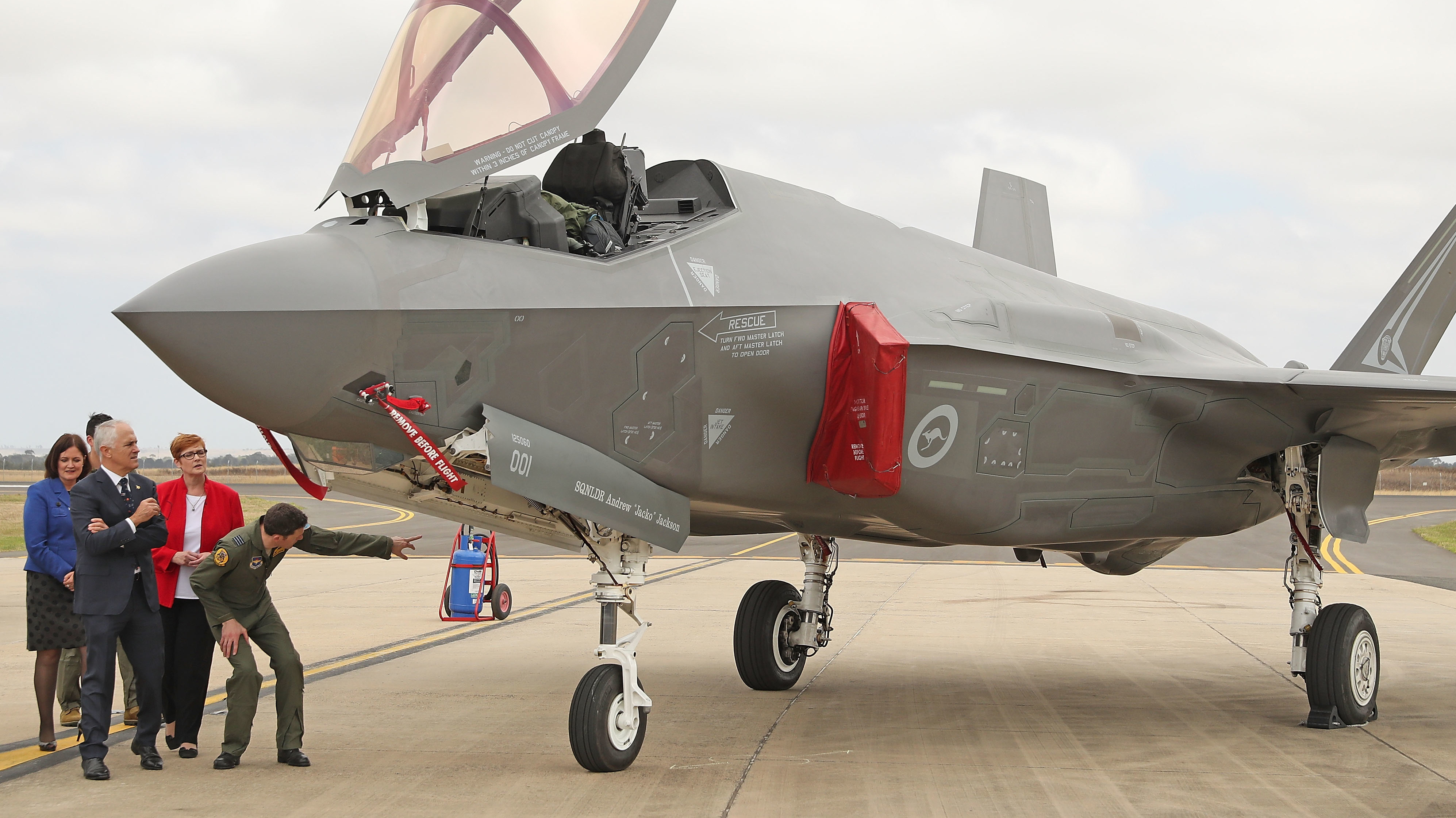Surprise: Most Americans Think We Shouldn't Be Selling Weapons To Anyone
Seventy percent Americans think showering the rest of the world with tanks, ships, planes, radar and munitions makes the U.S. less safe, according to a new survey, a bipartisan consensus on a policy that both Republican and Democratic administrations have embraced. Imagine that.
The survey, conducted by the Chicago Council For Foreign Affairs and first reported by DefenseOne, asked Americans about a broad range of U.S. foreign policy, from military intervention abroad to alliances with foreign countries and arms sales—which is, of course, nothing new.
The U.S. has exported weapons abroad since World War II, arming the Allies and neutral countries in the run-up to the U.S.'s own involvement, and continued to supply them throughout the war. After 1945, it provided arms to countries opposed to the Soviet Union and communism worldwide, which became a bigger and bigger business.
These days, overseas military sales support some 2.5 million American jobs in the defense and aerospace industries, with $192.3 billion arms sales in 2018 alone under the Trump administration, a significant uptick from the Obama administration, which is far from blameless here. It more than doubled foreign arms sales in its eight years compared to the second Bush administration.

But Americans, by a pretty wide margin, aren't down with that. Just nine percent of those polled believed that selling weapons to foreign countries made the U.S. more safe, while 20 percent thought it made no difference, and 70 percent believed arms exports actually made the U.S. less safe.
Per DefenseOne:
"There's just a very strong negative bipartisan view that selling weapons is — it doesn't make Americans safer, it's not a good thing to do," [Ivo Daalder, president of the Chicago Council on Global Affairs, and former U.S. ambassador to NATO under President Obama] said, in Washington on Monday. "That said, if you would — I'm sure that if we change the way the questions get phrased, which is, 'Do you believe the United States should provide, sell military equipment to our allies so we can fight better together?' I'm pretty sure that we'll get very high numbers saying yeah, it makes sense for our allies who are flying F-18s when we're flying F-18s. But as an issue, the president in particular has raised weapons sales as sort of the be all and end all of our relationship with Saudi Arabia. The American people aren't buying that one."
How much is $192.3 billion? For perspective, that's nearly a third of the defense budget, 10 times NASA's budget, and close to the amount the federal government pays annually to service the national debt. In the private sector, Apple's revenue for 2018 was $265 billion.

The buyers include over half the countries in the world, and the U.S. is the top supplier to 20 of the 40 largest importers in the world. According to the Stockholm International Peace Research Institute (SIPRI) America's three largest customers between 2014 and 2018 were Saudi Arabia, Australia, and the UAE. American arms sales accounted for 36 percent of global sales between states during that same period, with Russia next at 21 percent. Aircraft accounted for 53 percent of arms sales during that time.
These figures aren't surprising in some sense, since the U.S. and Russia have the most well-developed military-industrial complexes of anyone, and therefore the biggest capability to build and sell military things. But the survey results indicate that most people in the U.S. think that just because you can, doesn't mean you should, since it also stands to reason that if there were fewer weapons in the world, the world would be a safer place.

The margin is also wide enough to suggest there are multiple reasons, since survey respondents were amenable to other forms of American engagement abroad. Fifty-one percent said that stationing troops overseas made us safer, while 74 percent said that forming alliances with other countries also made us safer.
But the problem with weapons is that, once sold, the U.S. doesn't have a lot of control about how they are used. Some weapons are sold with certain preconditions: F-16s sold to Pakistan for example are meant to be used exclusively for defense. But if the U.S. doesn't stipulate preconditions, countries are free to use them however they want, with deadly consequences.

And while it's heartening that most of us agree that this isn't ideal policy, arms sales is also the kind of issue that might never be much in our national conversation. Perhaps that's why business is so big, with President Dwight D. Eisenhower's 1961 warning about the "acquisition of unwarranted influence" by the military-industrial complex never truer.
